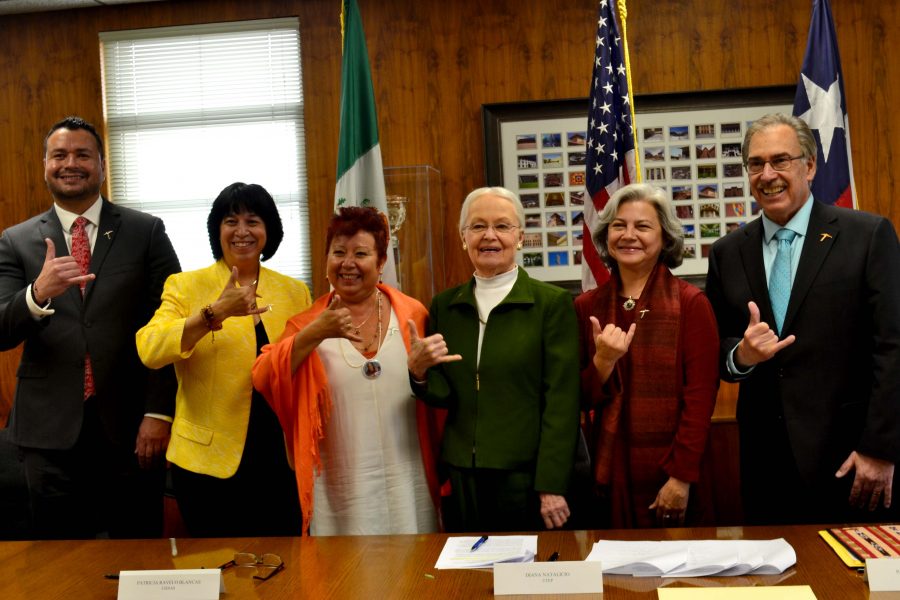On Thursday, March 23, President Diana Natalicio partnered with representatives of the Interdisciplinary Research Center for Humanities and Science of the Autonomous University of Mexico, the Autonomous University of Ciudad Juárez and the Research Center of Superior Studies in Social Anthropology to collaborate and promote gender equality.
The memorandum of understanding involves the establishment of Marcela Lagarde y de los Rios International Program, a research study focused on gender violence from one of the most influential anthropologists in the Spanish-speaking world.
Patricia Rabelo Blancas, associate professor and representative of CIESAS (acronym in Spanish), said the initiative began in 2015 at UACJ. She said that colleagues of the master’s degree in gender studies wanted to honor Lagarde for being the creator of the 2007 general law approved in Mexico for women to have access to a life free of violence.
“Marcela was the one who led the commission that followed the problem of feminicides in Ciudad Juárez and that later spread to all of the Mexican Republic, and so we decided to create a committee,” Rabelo said.
According to Susana Baez, coordinator of master’s degree in Interdisciplinary Studies on Gender at UACJ, the collaboration with Lagarde with the scientific committee of the gender studies master’s degree at Ciudad Juárez was the precedent for this agreement.
The agreement’s purpose is to strengthen opportunities for research studies, scholarships in humanities among the institutions in question and to create political impact around the topic of gender violence.
According to Baez, the purpose of the project from Lagarde is to contribute.
“The institutional compromise of the ones involved in the project is to open reflection spaces, analysis (spaces), but above all, of proposals to prevent and eradicate gender violence,” Baez said. “Especially to women and also to the masculine world because, unfortunately, the borderland knows too much about these topics.”
Marta Patricia Castañeda de Salgado, professor from the CEIICH-UNAM, said one of the great potentials of the project is to encourage feminine research and all its implications.
“I think it is a paradoxical situation (that feminicides still occur in Cd. Juárez) because from one side there is already the terms and politics that allow to acknowledge it,” Castañeda said. “But from the other, that doesn’t mean that it stops being a recurrent practice, where we increasingly have more news and reports of more sadist ways of doing feminicides.”
Castañeda also said the implementation of the study in a public legislation is a long-term goal of the project.
UTEP, CIESAS, and UNAM will continue to collaborate along with UT Austin, the Guatemalan Foundation, and the UACJ to further Lagarde’s legacy through research.










